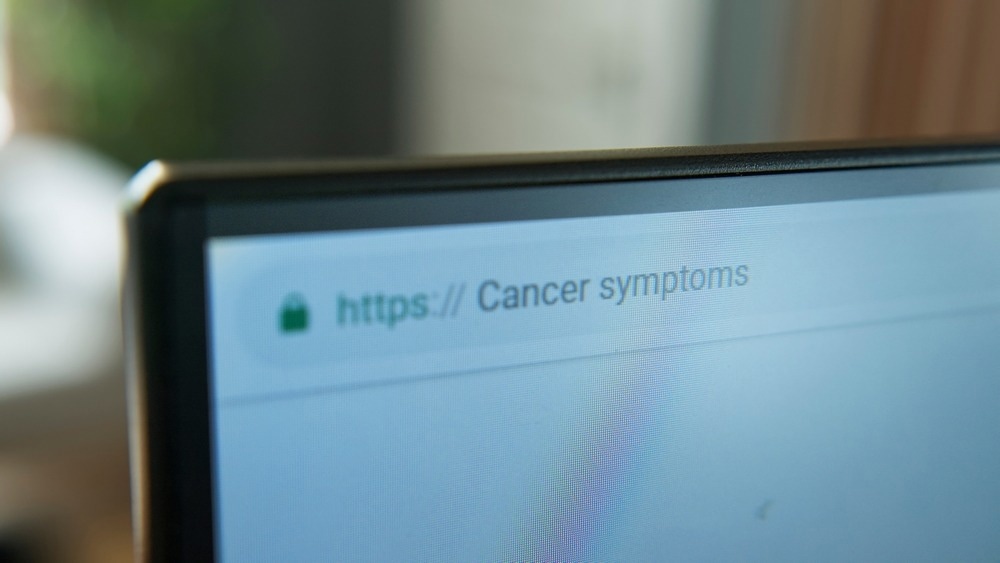What is cyberchondria? Understanding the digital age health anxiety
The mental health toll: How cyberchondria impacts wellbeing
Navigating online health information: Managing the overload
Treatment approaches for cyberchondria
Conclusion
References
Further reading
What is cyberchondria? Understanding the digital age health anxiety
The internet has transformed many aspects of our lives, including healthcare and health-related activities, significantly altering how we retrieve and search for information. 1 One notable outcome of this digital shift is the rise of a condition known as cyberchondria.
First coined in the mid-1990s in the UK, cyberchondria is a clinical condition characterized by abnormal behavioral patterns. Individuals with cyberchondria frequently search for medical information online, leading to heightened anxiety about their physical wellbeing. 2-4 Popular platforms such as Google, YouTube, Facebook, and Instagram can all contribute to this phenomenon.

Image Credit: panitanphoto/Shutterstock.com
One major contributing reason to cyberchondria is the imprecise nature of internet health information, which frequently results in incomplete, misleading, or erroneous information. 5 People looking for comfort could find themselves wasting a lot of time trying to verify the accuracy of health-related information. This procedure feeds into the loop wherein recurrent internet searches heighten worry and discomfort. 6
The mental health toll: How cyberchondria impacts wellbeing
Several behaviors, including the obsessive and repetitive features of obsessive compulsive disorder (OCD) and the reassurance-seeking behavior associated with anxiety disorders and hypochondriasis, are shared by cyberchondria. Cyberchondria is consistent with diseases related to problematic internet usage (PUI), such as internet gaming disorder, which is characterized by obsessive and prolonged online behavior. These parallels demonstrate the intricate connection between cyberchondria and behavioral addictions as well as mental health issues. 7-10
Based on a systematic review, the phrase "increase in anxiety" appeared most often in discussions of cyberchondria (almost 90% of studies), followed by "compulsive or repetitive behavior" (> 50% of articles). 11 Regardless of how OHR is specified—whether as excessive, time-consuming, bothersome, repetitive, or obsessive—one consistent feature among all definitions is a behavioral pattern. 11
The majority of the 61 publications that were chosen were cross-sectional and descriptive, mostly employing online surveys with college and general population students. Cyberchondria was associated with health anxiety, hypochondriasis, and OCD; psychological causes included low self-esteem and anxiety sensitivity. However, data on epidemiology, clinical characteristics, and therapies were scarce.
The Health Risks of Self-Diagnosing Mental Disorders
Excessive and compulsive online health searches that exacerbate worry and distress are a working diagnosis of cyberchondria, underscoring the need for additional research on this transdiagnostic condition. 11
A 2023 study examined the relationships among Chinese university students between cyberchondria, eHealth literacy, internet use, sleep quality, and online health information searching. Of the 2,744 individuals, 15.6% slept for fewer than 7 hours a day, and 19.9% reported having poor quality sleep. Extended periods spent on the internet and using phones before bedtime were linked to more disruptive sleep patterns, which in turn were linked to elevated levels of cyberchondria and diverse health conditions.
Cyberchondria was positively impacted by eHealth literacy, insufficient sleep, and searching for health information online. The study emphasizes the necessity of treatments that target students' online health search habits in order to enhance their quality of sleep. 12
There is little research on cyberchondria in people with hypochondriasis, and it's not obvious if cyberchondria is more common in hypochondriasis than in other diseases. In a study involving individuals with hypochondriasis, a clinical group, and a healthy group, three important cyberchondria subfacets were found. The sole indicator of the degree of health anxiety in hypochondriasis patients was emotional distress resulting from searches for health-related information on the internet.
Other subfacets were less particular to hypochondriasis, such as the kind of searches and features of the internet. These results highlight the importance of emotional discomfort and are consistent with theories of hypochondriasis and cyberchondria. 13
Navigating online health information: Managing the overload
Improving online health information literacy is necessary to prevent cyberchondria since people with higher literacy levels experience fewer cyberchondria episodes. Effective prevention should address risks, including impractical Internet expectations, information overload, and challenges with managing ambiguity and determining the reliability of sources. Education should make it clear that there are no conclusive health diagnoses on the Internet and that having more information does not always equate to having a better understanding.
Reliable sources should be highlighted, and coping mechanisms for dealing with uncertainty and information overload should be taught. Because people with cyberchondria frequently seek treatment for associated conditions like anxiety or hypochondriasis, specific management strategies are crucial. 14

Image Credit: Mahir KART/Shutterstock.com
Treatment approaches for cyberchondria
Treatment for cyberchondria frequently focuses on personality factors like perfectionism and intolerance for ambiguity, as well as elements of psychopathology, including health anxiety and obsessive-compulsive behaviors. It also tackles issues with handling contradicting internet health information and behavioral reactions to anxiety, such as seeking reassurance. Internet interactions are also taken into account, including irrational expectations for search engine results.
Adaptations of current techniques, such as a modified Internet-delivered cognitive-behavioral therapy (CBT), have demonstrated success in treating both cyberchondria and related health anxiety, indicating that educational and psychotherapy approaches can be successful. This strategy involves teaching efficient search techniques and enhancing online health information literacy. 14
Doctors should closely monitor their patients to avoid compromising the doctor-patient relationship by keeping worried patients off the internet in search of answers. Incorporating patients into their care and valuing their past knowledge are two ways that effective communication can improve the connection and treat cyberchondria 15.
Furthermore, integrating internet information search activity with medical histories may facilitate the early detection of newly developing health anxieties. It is imperative that patients and physicians alike become more knowledgeable about trustworthy online health resources, and professional associations can help direct physicians toward such resources.
Having readily available mental health therapies, such as specialist online therapy for cyberchondria, is crucial for efficient patient care if health fears related to the internet are severe. 15
Conclusion
To sum up, cyberchondria is a prime example of the intricate relationship that exists between mental health and digital information access, with excessive searches for health information online having the potential to exacerbate worry and suffering.
Improving online health literacy and modifying treatment plans for patients and healthcare professionals are only two of the many ways this issue must be addressed. Mitigating the effects of cyberchondria and improving general wellbeing requires ongoing study and good patient-physician communication.
References
- McDaid, D., & Park, A. L. (2010). Online health: untangling the web.
- Loos, A. (2013). Cyberchondria: too much information for the health anxious patient?. Journal of Consumer Health On the Internet, 17(4), 439-445.
- Mathes, B. M., Norr, A. M., Allan, N. P., Albanese, B. J., & Schmidt, N. B. (2018). Cyberchondria: Overlap with health anxiety and unique relations with impairment, quality of life, and service utilization. Psychiatry research, 261, 204–211. https://doi.org/10.1016/j.psychres.2018.01.002
- McMullan RD, Berle D, Arnáez S, Starcevic V. The relationships between health anxiety, online health information seeking, and cyberchondria: Systematic review and meta-analysis. J Affect Disord. 2019;245:270-278. doi:10.1016/j.jad.2018.11.037
- Eysenbach, G., Powell, J., Kuss, O., & Sa, E. R. (2002). Empirical studies assessing the quality of health information for consumers on the world wide web: a systematic review. JAMA, 287(20), 2691–2700. https://doi.org/10.1001/jama.287.20.2691
- Starcevic, V., & Berle, D. (2013). Cyberchondria: towards a better understanding of excessive health-related Internet use. Expert review of neurotherapeutics, 13(2), 205–213. https://doi.org/10.1586/ern.12.162
- Starcević V. (1990). Relationship between hypochondriasis and obsessive-compulsive personality disorder: close relatives separated by nosological schemes?. American journal of psychotherapy, 44(3), 340–347. https://doi.org/10.1176/appi.psychotherapy.1990.44.3.340
- American Psychiatric Association. (2000). Diagnostic and statistical manual of mental disorders. Text revision.
- Farrow, J., & Fineberg, N. A. (2008). Obsessive compulsive personality disorder and hypochondriasi. Prog Neurol Psychiatry, 12(8), 26-9.
- World Health Organization. (2018). International classification of diseases for mortality and morbidity statistics (11th Revision).
- Vismara, M., Caricasole, V., Starcevic, V., Cinosi, E., Dell'Osso, B., Martinotti, G., & Fineberg, N. A. (2020). Is cyberchondria a new transdiagnostic digital compulsive syndrome? A systematic review of the evidence. Comprehensive psychiatry, 99, 152167. https://doi.org/10.1016/j.comppsych.2020.152167
- Zhu, X., Zheng, T., Ding, L., & Zhang, X. (2023). Exploring associations between eHealth literacy, cyberchondria, online health information seeking and sleep quality among university students: A cross-section study. Heliyon, 9(6), e17521. https://doi.org/10.1016/j.heliyon.2023.e17521
- Jungmann, S. M., Gropalis, M., Schenkel, S. K., & Witthöft, M. (2024). Is cyberchondria specific to hypochondriasis?. Journal of anxiety disorders, 102, 102798. https://doi.org/10.1016/j.janxdis.2023.102798
- Starcevic V. (2023). Keeping Dr. Google under control: how to prevent and manage cyberchondria. World psychiatry : official journal of the World Psychiatric Association (WPA), 22(2), 233–234. https://doi.org/10.1002/wps.21076
- Wangler, J., & Jansky, M. (2020). General practitioners' challenges and strategies in dealing with Internet-related health anxieties-results of a qualitative study among primary care physicians in Germany. Herausforderungen für Allgemeinärzte und Strategien im Umgang mit internetbedingten Gesundheitsängsten – Ergebnisse einer qualitativen Studie bei Ärzten der Grundversorgung in Deutschland. Wiener medizinische Wochenschrift (1946), 170(13-14), 329–339. https://doi.org/10.1007/s10354-020-00777-8
Further Reading
Last Updated: Sep 30, 2024